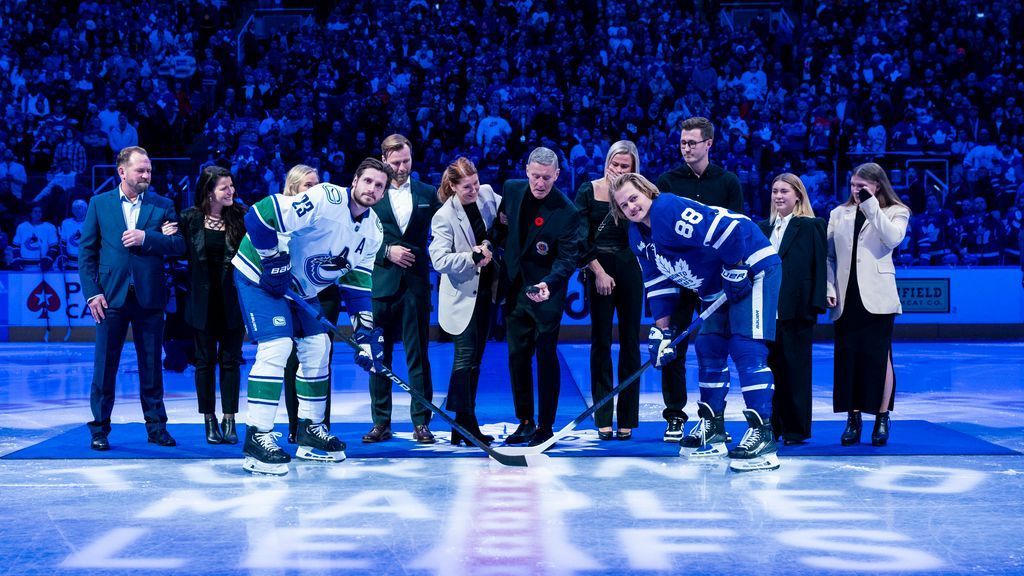
TORONTO -- Borje Salming was "The King" when he played for Toronto. On Saturday night, the Maple Leafs gave Salming a royal -- and overwhelmingly emotional -- welcome home.
The 71-year-old Salming -- who spent 16 of his 17 NHL seasons patrolling Toronto's blue line -- was diagnosed with amyotrophic lateral sclerosis (ALS) in July and has faced a rapid decline to his health. A progressive disease of the nervous system, ALS affects cells in the brain and spinal cord that leads to muscle control loss. Salming revealed last month he has lost the ability to speak.
The illness attacking Salming's body has not lessened his spirit though -- or his resolve. Salming's decorated on-ice career, spanning 1,148 games with 787 points from 1973 to 1990, made him the first Swedish-born player to be inducted by the Hockey Hall of Fame, with the class of 1996. It was this Hall of Fame weekend, when three more Swedish players will be inducted, that brought him back to Toronto again even amid rising health concerns.
The Leafs didn't miss an opportunity to pay respect to the franchise's defensive leader in assists (620) and points (760), not to mention one of its most beloved stars.
Before facing the Vancouver Canucks, Toronto played a tribute video highlighting the many facets of Salming's NHL and international success. An overcome Salming then made his way onto the ice surrounded by family and was met with a standing ovation from the crowd.
Instead of each team's captain coming out for the ceremonial puck drop it was Swedish-born Oliver Ekman-Larsson and William Nylander who got the call. In one final gesture, Leafs coach Sheldon Keefe iced a starting lineup that featured all six of Toronto's Swedish-born players.
It was the second time in as many nights Salming had been recognized. He shared a similarly special moment in Toronto on Friday at the annual Hall of Fame game between Toronto and Pittsburgh. Salming was helped to the ice that night by good friend and former teammate Darryl Sittler, who broke down in tears watching Salming cheered on by the arena.
Salming met with Sittler in September and said he wanted to be in Toronto for this weekend that would feature three Swedish-born inductees in Vancouver's Henrik and Daniel Sedin and Ottawa's Daniel Alfredsson.
They, and other Swedes, might never have had NHL careers if not for Salming's early perseverance. He was a pioneer in every sense of the word.
The 1970s rhetoric surrounding Scandinavian-grown hockey players was that they were too soft to succeed in the North American game. Salming's bruising style challenged that stereotype with a unique blend of physicality, skill and shot-blocking tenacity. It also made him a popular target of fellow players.
But Salming would never back down from a fight. The same holds true against ALS.
"They were trying to intimidate him," Sittler told ESPN on Saturday of the attention Salming drew. "They physically tried to abuse him in games and throw him off. But Borje, with his disposition, his fortitude, his character, he went on to have a 20-year career in the National Hockey League. Now with this challenge of ALS and his physical state, somehow, he again showed myself and my other teammates and the fans that this is who he is, this is Borje Salming. And the fact that he's here is a testament to all those characteristics that he has as a person."















 Phone: (800) 737. 6040
Phone: (800) 737. 6040 Fax: (800) 825 5558
Fax: (800) 825 5558 Website:
Website:  Email:
Email: 






